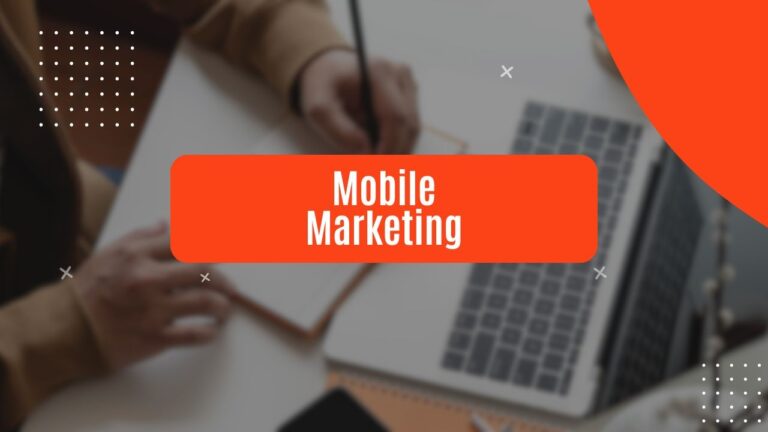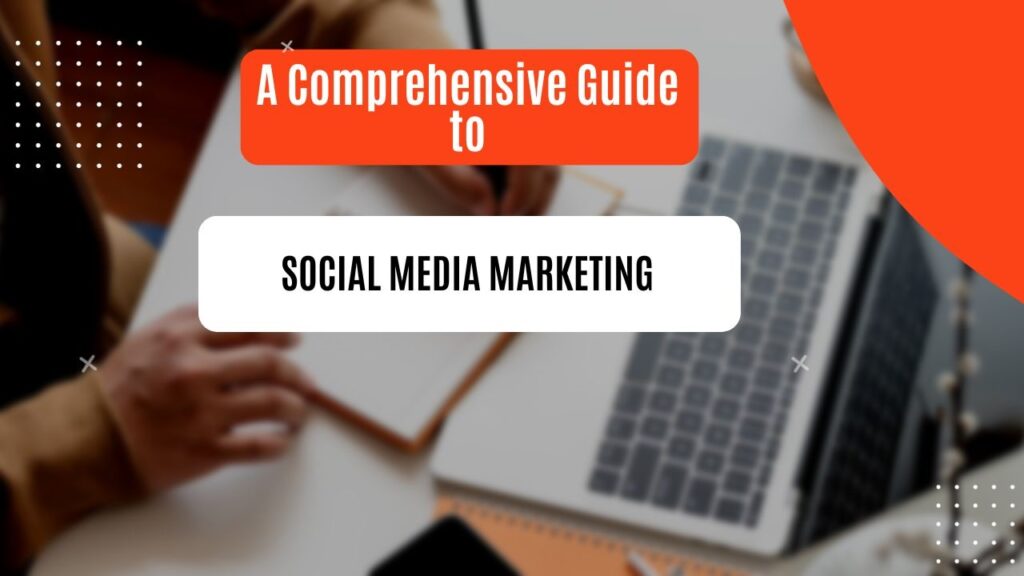The world is now mobile. With smartphones being our constant companions, mobile marketing has become a potent tool for connecting with your target demographic. This innovative digital marketing strategy uses mobile devices widespread use to establish a personal and compelling connection with customers by putting customised messages, offers, and experiences at their fingertips.
Mobile marketing is a current reality that is changing the marketing landscape; it is no longer an idea from the future. Since more consumers than ever before access information, shop, and communicate with companies via smartphones, it’s imperative to take advantage of this mobile-first environment to stay ahead of the curve and competitive. If you ignore mobile marketing, you will be missing out on a great chance to connect with your audience where they are most engaged.
A crucial component of digital marketing is the ever-evolving field of mobile marketing. We’ll examine its importance in the current digital era, its essential elements and practical tactics, clarify any potential obstacles and provide insights into the fascinating future developments that will shape mobile marketing. Prepare to unleash the potential of mobile and establish a whole new kind of connection with your audience!
Comprehending Mobile Advertising
In today’s digital world, when a large percentage of internet users consume material mainly via their mobile devices, it is essential to understand mobile marketing. The term “mobile marketing” describes methods and approaches intended to connect with customers via websites, email, SMS, social media, and applications on their smartphones, tablets, and other mobile devices. The widespread use of mobile technology has given companies an unprecedented opportunity to interact in real-time with their target customers and provide engaging and easy personalised experiences. A thorough grasp of mobile user behaviour, including how users engage with information, their preferences, and the unique features and constraints of mobile devices, is necessary for effective marketing.
The ability to provide seamless, user-friendly experiences that address the particular requirements of mobile consumers is critical to the success of this kind of marketing. This entails making websites mobile-friendly, guaranteeing quick loads, and offering user-friendly navigation. To improve engagement and provide personalised information, companies must also make use of mobile-specific capabilities like push notifications, location-based services, and mobile applications. Advanced technologies like artificial intelligence and machine learning, which can analyse user data to anticipate behaviours and personalise interactions, are also beneficially integrated into mobile. Businesses may more effectively reach and engage their audiences, increase conversion rates, and forge better customer connections by concentrating on the user experience and using mobile technologies.
Mobile marketing: what is it?
All marketing initiatives aimed at contacting customers via their smartphones, tablets, and other mobile devices are collectively referred to as mobile marketing. It’s a digital marketing approach made to reach your target market on mobile devices, where they spend a large amount of time. This kind of marketing makes use of smartphones’ highly personal and always-connected nature to send customised messages, promotions, and experiences in place of more conventional media like print advertisements or desktop computers.
Consider offering a consumer an interactive mobile game that promotes your brand message or giving them a personalised discount via their phone when they are shopping close to your business. That is how effective mobile marketing is. It enables you to quickly and precisely connect with your target audience, resulting in a more engaging and unique brand experience.
Mobile marketing includes a wide variety of techniques and approaches, such as location-based promotions, social media marketing, in-app advertising, and SMS and MMS messaging. Selecting the ideal mix of platforms and messaging that appeal to your target demographic and support your overarching marketing objectives is crucial.
Significance of Mobile Advertising
Think about these details: People use their smartphones for an average of three hours and fifteen minutes a day, and over 80% of internet users possess one. These figures demonstrate a steadily increasing trend rather than being stagnant. Neglecting mobile marketing implies losing out on important chances to connect and interact with prospective clients.
Elements of Mobile Advertising
What elements go into creating an effective mobile marketing plan? Let’s dissect its fundamental elements.
SMS Marketing
Reaching your audience directly is possible with SMS marketing. Sending text messages with warnings, updates, or promotions is part of it. It is one of the most successful marketing channels because of its 98% open rate. For example, a restaurant may immediately increase foot traffic by offering its users SMS discounts.
Push Notifications and Mobile Applications
Customers may experience a personalised environment using mobile applications. You may keep people interested and informed about new offerings or items by sending them push notifications. An e-commerce app, for instance, can instantly notify consumers about flash sales on their displays and encourage them to take action.
Mobile-Friendly Websites
A user-friendly website guarantees a smooth experience on mobile devices. Mobile-friendly websites are given priority in Google’s mobile-first indexing, which may affect your SEO ranking. A disorganised, sluggish website might turn visitors away, hurting your chances of doing business.
Techniques for Successful Mobile Advertising
Your mobile marketing campaigns may be improved by putting the correct techniques into practice. Here are some useful suggestions.
Customisation in Mobile Advertising
Customisation is essential. Customers want customised experiences, and you can provide this using the data you gather. Utilise purchasing behaviour, geography, and browsing history to create tailored communications that appeal to your target market.
Making Use of Geolocation
Geolocation raises the bar for marketing. You may provide users with localised marketing and services by focussing on them according to where they are. This boosts local SEO in addition to increasing user engagement. For instance, a retail establishment might increase foot traffic and sales by sending exclusive deals to people nearby.
Challenges in Mobile Marketing
Mobile marketing has certain challenges, just like any other marketing plan. Success requires an understanding of these obstacles and how to overcome them.
Privacy Concerns
With the emergence of regulations like the GDPR, firms need to make sure they have customers’ permission before collecting data. Having strong security measures in place and being open about data use might help you gain the audience’s confidence.
Ad Fatigue
Daily exposure to advertisements causes ad fatigue among users. Concentrate on producing interesting and relevant material to counter this. Set a limit on how often you run adverts and give quality precedence over the number.
Upcoming Developments in Mobile Advertising
What will mobile marketing entail next? Let’s examine the next patterns influencing this ever-evolving industry.
Artificial Intelligence and Machine Learning
Mobile marketing is being revolutionised by AI and machine learning. Predictive analytics is made possible by these technologies, which aid in your comprehension of consumer behaviour and preferences. More accurate targeting and customised experiences are made possible by this.
Experiences using Augmented Reality (AR)
In mobile marketing, AR is generating immersive experiences. You may provide dynamic and captivating information by incorporating augmented reality into your advertising. An augmented reality software would allow you to virtually try on furniture in your living room before you buy it. That’s the next level of customer service.
In summary
Mobile marketing is no longer considered an optional add-on. Including mobile into your marketing plan is now required in today’s mobile-first society, as smartphones have become personal extensions of our bodies. It would be like missing out on a goldmine of chances to ignore the large and active audience that spends endless hours on their mobile devices. Companies that don’t harness the potential of mobile run the danger of slipping behind and becoming irrelevant in a world where mobile interactions are becoming more and more important.
Knowing the fundamentals of mobile marketing, such as location-based targeting, social media interaction, SMS and app marketing, is just the first step. You can fully realise the promise of mobile marketing by putting into practice methods that are specific to your target audience, using data analysis to optimise campaigns, and keeping on top of new trends like voice search and augmented reality. Accept the mobile revolution, and see how your company may prosper in an ever-changing digital environment rather than simply survive.





